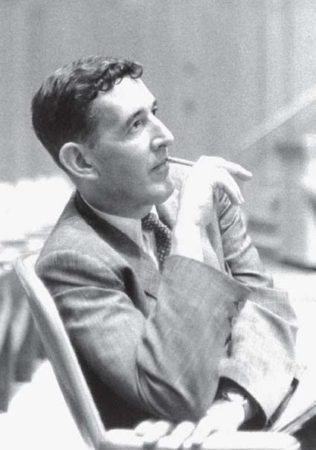The Organization Man
By William H. Whyte, with a new foreword by Joseph Nocera
Regarded as one of the most important sociological and business commentaries of modern times, The Organization Man developed the first thorough description of the impact of mass organization on American society. During the height of the Eisenhower administration, corporations appeared to provide a blissful answer to postwar life with the marketing of new technologies—television, affordable cars, space travel, fast food—and lifestyles, such as carefully planned suburban communities centered around the nuclear family. William H. Whyte found this phenomenon alarming.
As an editor for Fortune magazine, Whyte was well placed to observe corporate America; it became clear to him that the American belief in the perfectibility of society was shifting from one of individual initiative to one that could be achieved at the expense of the individual. With its clear analysis of contemporary working and living arrangements, The Organization Man rapidly achieved bestseller status.
Since the time of the book’s original publication, the American workplace has undergone massive changes. In the 1990s, the rule of large corporations seemed less relevant as small entrepreneurs made fortunes from new technologies, in the process bucking old corporate trends. In fact this “new economy” appeared to have doomed Whyte’s original analysis as an artifact from a bygone day. But the recent collapse of so many startup businesses, gigantic mergers of international conglomerates, and the reality of economic globalization make The Organization Man all the more essential as background for understanding today’s global market. This edition contains a new foreword by noted journalist and author Joseph Nocera.
William H. Whyte (1917–1999) was the author of numerous books including The Last Landscape (1968), City: Rediscovering the Center (1988), and The Social Life of Small Urban Spaces (1980; 2001). The Organization Man (1956) grew out of his groundbreaking series of articles for Fortune magazine. Educated at Princeton University, he was later Distinguished Professor at Hunter College of the City University of New York. Read more about William H. Whyte.
Reviews
“One of the most influential books of the twentieth century. It established the categories Americans now use when thinking about the workplace, the suburbs, and their lives.” —David Brooks
“A truly important book … Mr. Whyte is a brilliantly gifted student of the customs of this country.” —Orville Prescott, The New York Times
“This will certainly be one of the books that mark the epoch.” —August Heckscher
“A book of first importance. A brilliant job of exploration and generalization. Will be read for years to come.” —Max Lerner, The New York Post
“Of the handful of famous books published in the 1950s decrying the values of the era—The Lonely Crowd, The Man in the Gray Flannel Suit, and The Power Elite among them—none have stayed with us the way The Organization Man has.” —Joe Nocera, in the foreword to the new edition
“A magnificent book which I read with mounting pleasure and intellectual excitement.” —Fritz Oppenheimer, The Yale Review
“[Whyte’s] belief in the value of the individual mind lends an edge to his work, and makes his description of the ethos of the technician in America today among the best available.” —C. Wright Mills, The New York Times Book Review
“A book of first importance. A brilliant job of exploration and generalization. Wil be read for years to come.” —Max Lerner, New York Post



